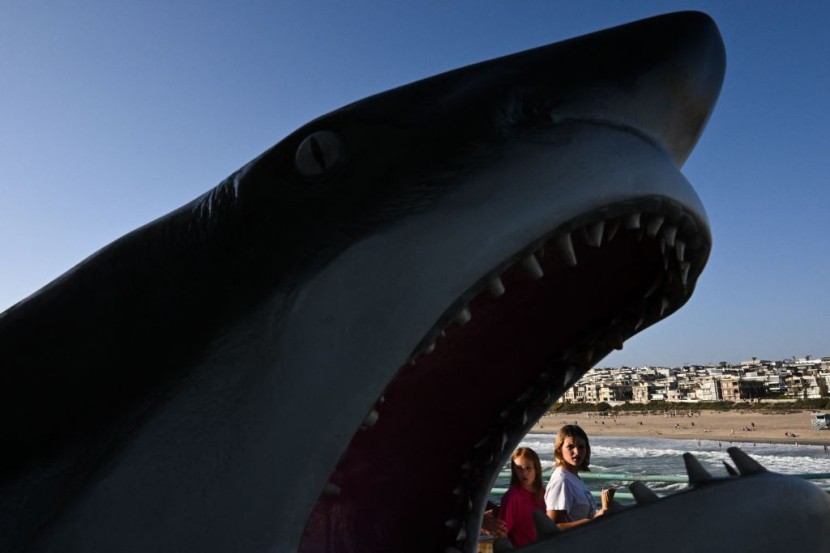
(Photo: by PATRICK T. FALLON/AFP via Getty Images) People carry ice cream cones as they walk past a statue of a great white shark on the Manhattan Beach pier on June 14, 2022, in Manhattan Beach, California. - The US Federal Reserve is poised to raise borrowing costs on June 15 amid the troubling acceleration of inflation, with the only question being whether officials will opt for the biggest hike in nearly three decades or a smaller step up.
The body of a great white shark, which appeared to have been the victim of a terrible attack, washed up on a beach in Australia, raising questions.
The fish, which was around 3 meters (10 feet) long, was entirely torn apart when it washed up on the coast in Portland, Victoria, on October 17, as reported by Sky News.
Ben Johnstone, a fisherman and owner of a bait shop, said he was "pretty certain" the marine predator had been attacked by a killer whale, a claim that aroused curiosity among the locals.
According to the National History Museum, killer whales and great white sharks are both apex predators, meaning they are at the top of their respective food systems.
The species, however, can "come into conflict when they cross paths" since they compete for the same prey, according to the museum's website.
A killer whale was once seen in the US in the 1990s stunning a shark by ramming into it, flipping it over, and bringing it to the top of the water to suffocate it.
It was then seen consuming the liver of the shark, which is rich in lipids and oils that keep the fish buoyant.
A First For Australia
Killer whales have been observed to selectively take the liver and even the heart of their prey in more recent attacks in South Africa. According to Mr. Johnstone, this incident was a first for Australia's Portland region.
He stated that he believed Melbourne-based experts had now acquired the corpse so they could conduct more examinations.
Read also: Krill, a Vital Part of Antarctica's Ecosystem, Targeted by Factory Fishing
Several Encounters Between Orcas and Great Whites
According to trophic ecologist Lauren Meyer, who is a member of an international team building a database on such interactions, there have already been nine encounters between orcas and great whites documented in Australia and New Zealand, in addition to events in the United States and South Africa.
Although the cause of the shark's death was not "100% clear," according to Dr. Meyer of Flinders University, it was most likely a killer whale that attacked it in order to "slurp out" its liver.
Dr. Meyer stated that scientists will examine rake scars and genetic remnants, such as saliva, as they continue to look into the occurrence. Samples from the shark's carcass have been forwarded to government organizations and academic institutions.
She did, however, state that she was "not surprised" to see such an occurrence take place in Portland, which she described as "an important corridor" for great whites and an area where orcas prey.
The Natural History Museum claims that after the attacks in South Africa and California, it seemed as though the entire ecology in those places started to alter in a way that worried experts.
It was discovered that the orcas changed the behaviors of other sharks, abalone, and penguins by frightening the great whites away for weeks or even months.
Related article: US Study: Climate Change Is Causing Whales, Dolphins to Lose Food, Home








